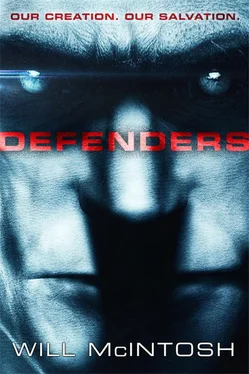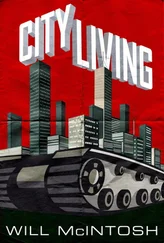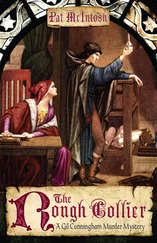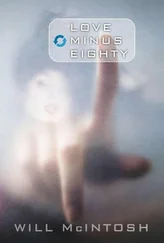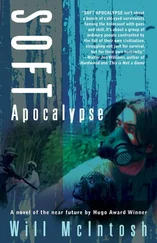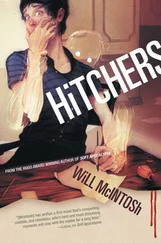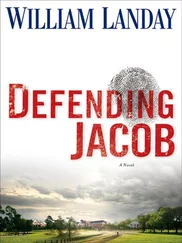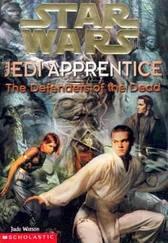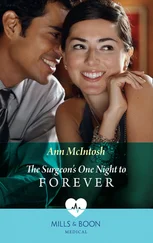“Hello, Five.”
At Lila’s words, Kai sat up straighter in his seat, looked at Lila expectantly. Then he chuckled, evidently receiving a communication of his own. He went on chuckling softly, shaking his head.
“What did he say?” Lila asked.
“He said, ‘Welcome, Boy Who Betrayed the World.’”
Before you ask, there’s no starship under construction. It’s just wishful thinking on the part of humans.
Lila was relieved, but also a little disappointed. It would make things a lot simpler if the Luyten left. “Why not? I mean, why stay on a planet with an intelligent species bearing a grudge?”
Because the trip here was awful, and it took generations. The nearest potentially habitable planet from here is three times as far. And who’s to say that one isn’t inhabited?
“Good point,” Kai said.
I’d like to say hello to Errol. Can you prepare him, so he won’t be startled?
“Errol, Five wants to say hello to you,” Lila said. “Is that okay? It’s a little scary at first.”
Errol’s eyes widened. He drew his legs up to his chin, clapped his palms tightly over his ears, then nodded eagerly. “Okay, go.”
Watching Errol grin, and then answer Five with a string of “Yeses” and “Okays,” Lila thought maybe everything would be okay. If they could just manage to get along for a generation or two, maybe this would all seem normal, and people would stop being afraid.
Dr. Jim Pugh played a huge role in helping me map out this novel, on napkins at Moe’s Southwest Grill in Statesboro, Georgia. I dedicate this novel to him with thanks for his help, and more important, his friendship.
I’m deeply grateful to my father, Brigadier General William F. McIntosh, for his assistance with the military aspects of Defenders . Before I began writing, I didn’t know a platoon from a division, an M-16 from an M1918A-1. I do now.
Sincere thanks to Ian Creasey, a terrific writer and one of the most insightful critiquers on the planet, for providing invaluable feedback on the first draft.
Thank you to Jacob Robinson for reading the first section of this novel early on, and making a few very crucial suggestions. You spared me from a great deal of backtracking, Jacob! And special thanks to Jacob, Donald De Line, and Michael Prevett for their encouragement and support in this project.
I’m grateful to John Joseph Adams, who bought “Defenders,” the short story, for Lightspeed magazine, and got the ball rolling.
Orbit Books took a chance on this novel before I’d written a word. I’m extremely grateful for their faith in me, and in Defenders .
As always, a shout-out to Clarion and Taos Toolbox, writing workshops that were crucial to my development as a writer.
Love and gratitude to my wife, Alison Scott, for her support and patience as I talked out plot and character over countless car rides and dinners.
Finally, thanks to my agent, Seth Fishman, who read the short story this novel is based on, and saw potential in it. Defenders would not exist if not for him.

www.orbitbooks.net
Hugo Award-winner Will McIntoshlives in Williamsburg, Virginia, after recently leaving a career as a psychology professor in southeast Georgia to write full time. He still teaches as an adjunct professor at the College of William and Mary. His debut novel, Soft Apocalypse , was a finalist for both a Locus Award and the John W. Campbell Memorial Award. His novel Love Minus Eighty was published in 2013 by Orbit Books. Defenders is his fourth novel.
Find out more about Will McIntosh and other Orbit authors by registering for the free monthly newsletter at www.orbitbooks.net.
if you enjoyed
DEFENDERS
look out for
ANCILLARY JUSTICE
by
Ann Leckie
The body lay naked and facedown, a deathly gray, spatters of blood staining the snow around it. It was minus fifteen degrees Celsius and a storm had passed just hours before. The snow stretched smooth in the wan sunrise, only a few tracks leading into a nearby ice-block building. A tavern. Or what passed for a tavern in this town.
There was something itchingly familiar about that outthrown arm, the line from shoulder down to hip. But it was hardly possible I knew this person. I didn’t know anyone here. This was the icy back end of a cold and isolated planet, as far from Radchaai ideas of civilization as it was possible to be. I was only here, on this planet, in this town, because I had urgent business of my own. Bodies in the street were none of my concern.
Sometimes I don’t know why I do the things I do. Even after all this time it’s still a new thing for me not to know, not to have orders to follow from one moment to the next. So I can’t explain to you why I stopped and with one foot lifted the naked shoulder so I could see the person’s face.
Frozen, bruised, and bloody as she was, I knew her. Her name was Seivarden Vendaai, and a long time ago she had been one of my officers, a young lieutenant, eventually promoted to her own command, another ship. I had thought her a thousand years dead, but she was, undeniably, here. I crouched down and felt for a pulse, for the faintest stir of breath.
Still alive.
Seivarden Vendaai was no concern of mine anymore, wasn’t my responsibility. And she had never been one of my favorite officers. I had obeyed her orders, of course, and she had never abused any ancillaries, never harmed any of my segments (as the occasional officer did). I had no reason to think badly of her. On the contrary, her manners were those of an educated, well-bred person of good family. Not toward me, of course—I wasn’t a person, I was a piece of equipment, a part of the ship. But I had never particularly cared for her.
I rose and went into the tavern. The place was dark, the white of the ice walls long since covered over with grime or worse. The air smelled of alcohol and vomit. A barkeep stood behind a high bench. She was a native—short and fat, pale and wide-eyed. Three patrons sprawled in seats at a dirty table. Despite the cold they wore only trousers and quilted shirts—it was spring in this hemisphere of Nilt and they were enjoying the warm spell. They pretended not to see me, though they had certainly noticed me in the street and knew what motivated my entrance. Likely one or more of them had been involved; Seivarden hadn’t been out there long, or she’d have been dead.
“I’ll rent a sledge,” I said, “and buy a hypothermia kit.”
Behind me one of the patrons chuckled and said, voice mocking, “Aren’t you a tough little girl.”
I turned to look at her, to study her face. She was taller than most Nilters, but fat and pale as any of them. She out-bulked me, but I was taller, and I was also considerably stronger than I looked. She didn’t realize what she was playing with. She was probably male, to judge from the angular mazelike patterns quilting her shirt. I wasn’t entirely certain. It wouldn’t have mattered, if I had been in Radch space. Radchaai don’t care much about gender, and the language they speak—my own first language—doesn’t mark gender in any way. This language we were speaking now did, and I could make trouble for myself if I used the wrong forms. It didn’t help that cues meant to distinguish gender changed from place to place, sometimes radically, and rarely made much sense to me.
I decided to say nothing. After a couple of seconds she suddenly found something interesting in the tabletop. I could have killed her, right there, without much effort. I found the idea attractive. But right now Seivarden was my first priority. I turned back to the barkeep.
Читать дальше
